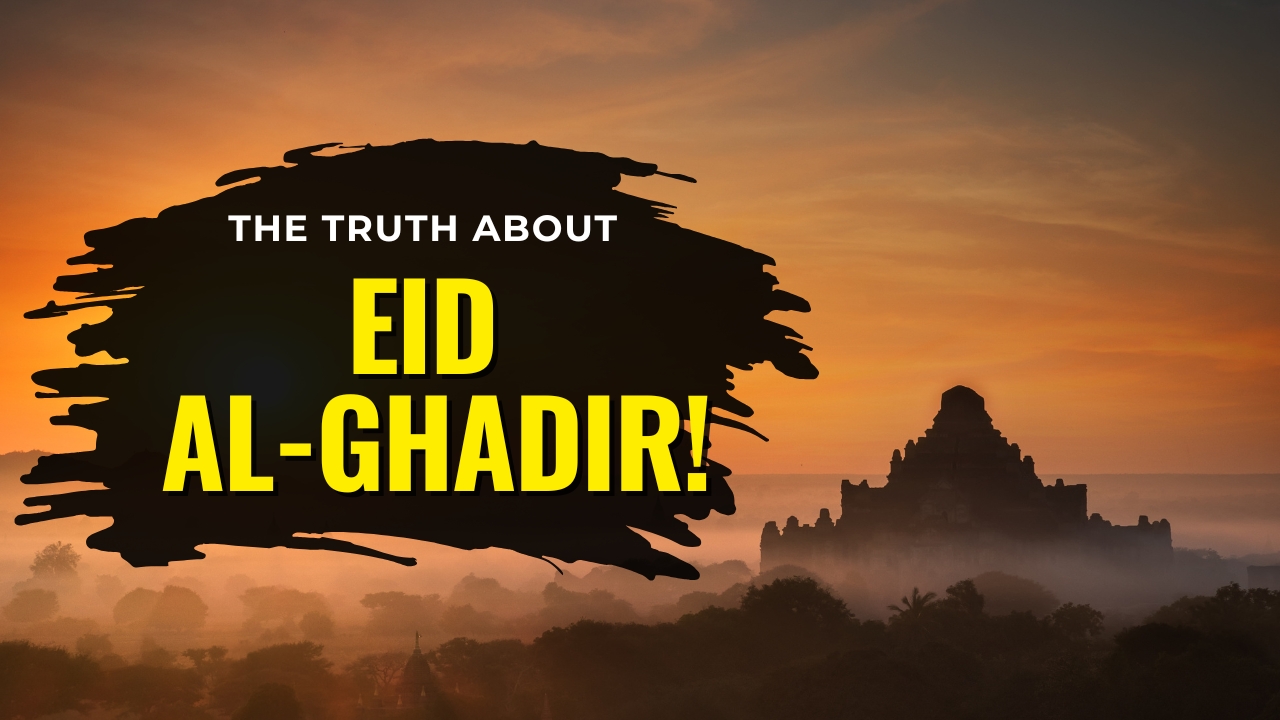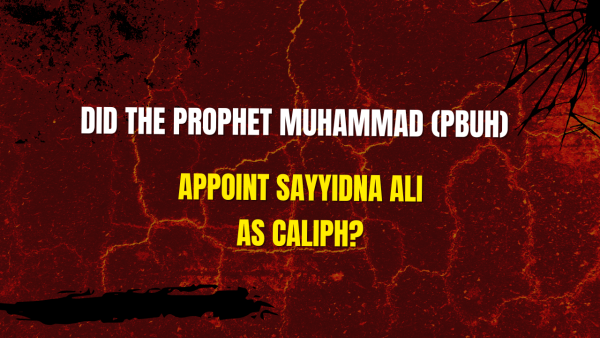Dear Readers,
Some people commemorate the 18th of Dhul-Hijjah as “Eid al-Ghadir,” claiming it to be the day when the Prophet Muhammad ﷺ announced the caliphate of Ali ibn Abi Talib (RA). However, this claim is neither supported by the Qur’an nor by the authentic Sunnah, nor was it practiced by the noble companions (RA). In reality, this celebration and the associated rituals were first introduced in 352 AH by Mu’izz al-Dawla, a historical fact that in itself is enough to establish it as an innovation (bid‘ah) and a falsehood.
Additionally, using this event—and the hadith of Ghadir (“Whoever considers me his friend, then Ali is his friend”)—to claim that Ali (RA) was the Prophet’s direct and divinely appointed successor is an unfounded and baseless notion.
The statement made by the Prophet ﷺ during Ghadir Khumm was not a declaration of caliphate. Rather, it was said to resolve a temporary dispute and to highlight the virtues of Ali (RA). If the Prophet ﷺ had intended to appoint a successor, he would have used clear and specific terms like “caliph” (خلیفہ) or “leader” (والی).
The context behind the Ghadir Khumm sermon is well-documented:
Ali (RA) had been appointed as a commander in Yemen by the Prophet ﷺ during a campaign involving the distribution of war spoils. Some companions, especially Buraydah al-Aslami (RA), were displeased with certain decisions made by Ali (RA)—even though those decisions were just and correct. Buraydah (RA) later confessed:
“I was so upset with Ali (RA) that a kind of resentment developed in my heart.”
Upon learning of this, the Prophet ﷺ asked him directly, “Do you hold any grudge against Ali?” When Buraydah replied in the affirmative, the Prophet ﷺ instructed him not to harbor such feelings.
This was the background behind the Prophet’s speech at Ghadir Khumm, a location on the route between Makkah and Madinah.
Indeed, this sermon highlights the extraordinary status of Ali (RA) and emphasizes the prohibition of harboring hatred against him—something all true believers agree upon. But using this hadith to prove that Ali (RA) was the immediate and divinely appointed caliph is flawed for several reasons:
1.The term “Mawla” means friend or supporter, not ruler or leader. Had leadership been intended, the Prophet ﷺ would have used the term “Wali” or “Caliph.” The full context of the hadith supports this interpretation.
2.If Ali (RA) were truly appointed as the Prophet’s successor, why would Abbas (RA), the Prophet’s uncle, ask about caliphate during the Prophet’s final illness—especially in the presence of Ali (RA)? Were they both unaware of the supposed announcement at Ghadir?
3.Even if Abbas (RA) had forgotten, Ali (RA) could have reminded him. Yet, Ali (RA) never used the Ghadir event as evidence to claim caliphate—not even once.
4.Ali (RA) refrained from asking the Prophet ﷺ directly for the caliphate during the Prophet’s illness, fearing that if he was denied, he would be permanently excluded from the matter.
5.If Ali (RA) had been divinely appointed, why did he accept the leadership of the three caliphs before him? And if Shi’a doctrine holds that Ali was divinely chosen and also capable of solving all problems (“Mushkil Kusha”), then either that belief must be abandoned or the claim of divine appointment. Both cannot stand together.
Thus, portraying the Ghadir Khumm event as a declaration of Ali’s (RA) caliphate contradicts historical facts, rational analysis, and the collective understanding and practice of the noble companions (RA). Furthermore, the life, words, and conduct of Ali (RA) himself refute the claim that he considered himself a divinely appointed caliph.
Using the Hadith of Ghadir to argue for immediate caliphate is not just incorrect—it leads people away from the truth. The correct understanding of Islam must come from the Qur’an, authentic Sunnah, and the understanding of the Prophet’s companions (RA)—not from later political ideologies or sectarian interpretations.
It is our responsibility as Muslims to stay away from all forms of innovation and false beliefs, and to adhere to the clear teachings of the Qur’an and Sunnah as practiced by the Prophet’s companions (RA). That is the path to salvation and success.
May Allah guide us and grant us the ability to act upon the truth. Ameen.













Leave a Reply